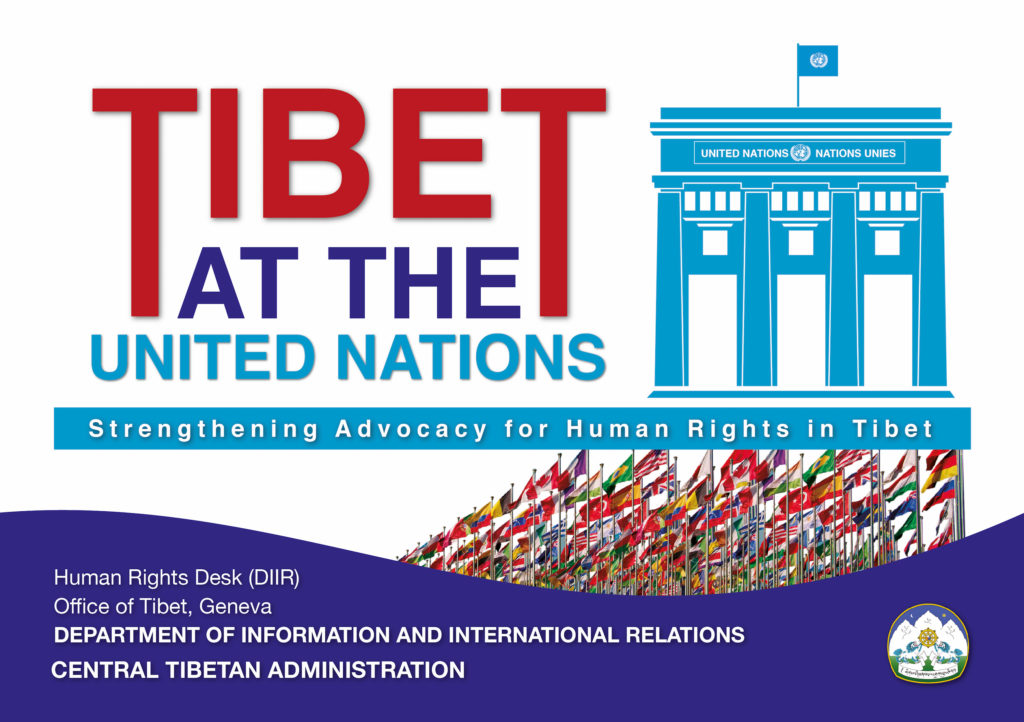 The Central Tibetan Administration (CTA) – the Tibetan Government-in-Exile – is instigating a programme to strengthen human rights advocacy for Tibet in preparation for next month’s Human Rights Council at the United Nations (UN) in Geneva¬.
The Central Tibetan Administration (CTA) – the Tibetan Government-in-Exile – is instigating a programme to strengthen human rights advocacy for Tibet in preparation for next month’s Human Rights Council at the United Nations (UN) in Geneva¬.
The Department of Information and International Relations (DIIR) – the CTA wing that handles international affairs and information – sent a delegation of three members to the UN mission in Geneva, to engage in a week-long advocacy programme under the campaign framework Tibet at the United Nations-Strengthening Advocacy for Human Rights in Tibet.The delegates were SonamNorbuDagpo who isSecretary of the DIIR, Dhardon Sharling who is Information Secretary at the DIIR and UN and Human Rights officer KaldenTsomo. Nyima Lhamo, who is Tulku Tenzin Delek Rinpoche’s niece, was also in attendance.
The advocacy programme was followed on January 29 by a two-day strategic planning meeting cum training session with UN experts and also included representatives from the Office of Tibet Geneva, the International Campaign for Tibet, International Tibet Network, Tibet UN Advocacy Coalition and the European Member of the Tibetan Parliament-in-Exile.
The meeting aimed at reviewing CTA’s past UN advocacy and preparing for the upcoming 34th UN Human Rights Council. “We are devising opportunities to seek UN engagement and subsequent addressing of the pressing human rights situation in Tibet” said delegation member SonamNorbuDagpo.
DIIR highlighted the human rights violations in Tibet, in particular religious repression – as in the case of the large-scale demolitions and forced eviction of monks and nuns from Larung Gar, one of the world’s largest centres of Buddhist learning in Tibet. The CTA is asking the UN High Commissioner for Human Rights to raise the critical human rights situation in Tibet in his opening statement at the forthcoming Human Rights Council Session.
Other gross human rights violations on the agenda included monitoring and surveillance; travel restrictions and passport confiscation;enforced disappearances as in the case of the Panchen Lama who was abducted 20 years ago;arrests and sentencings with particular reference to the case of imprisoned language rights advocate Tashi Wangchuk;torture and death in prison – looking at the case of Tulku Tenzin Delek Rinpoche who died in custody in 2015 and self-Immolation protests against China’s repressive policies.
“This training proved to be very effective…to best make use of the UN mechanisms and its procedures to keep the issue of Tibet alive on the UN Human Rights agenda,” said Konchok, a participant from Zurich.




 Print
Print Email
Email